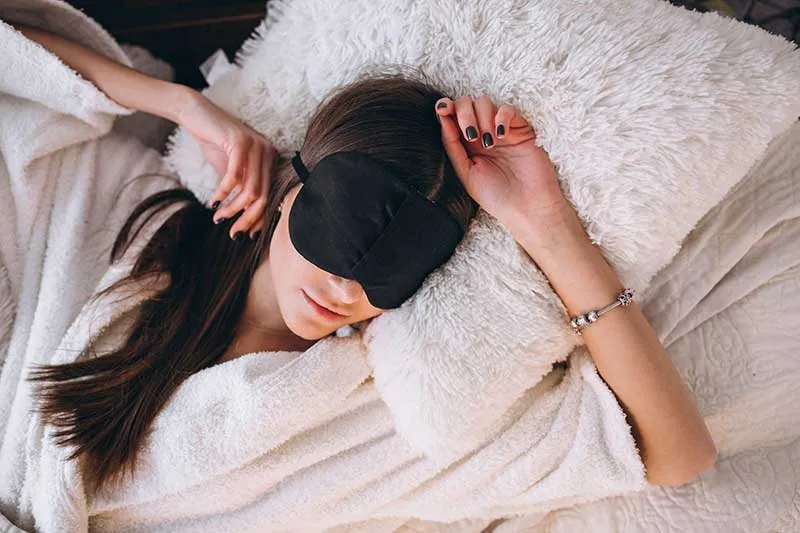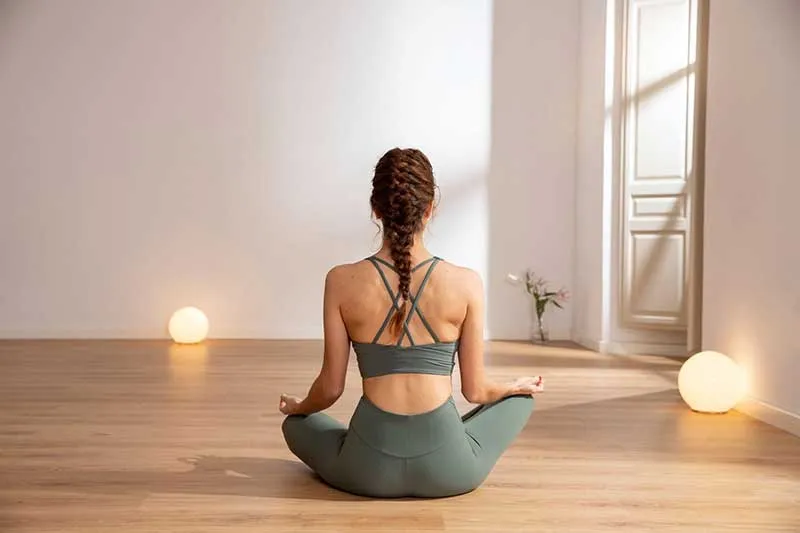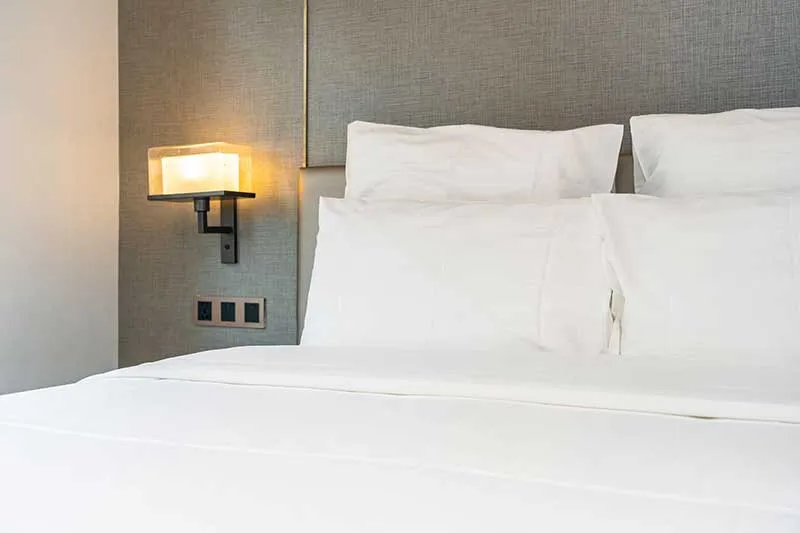As you know, sleep directly affects our mental and physical health. However, over the past few decades, both the quality and quantity of sleep have declined. Many people often suffer from insomnia and have difficulty falling asleep.
Today’s article with simple ways will help you sleep better at night. Let’s find out!
Table of Contents
1, Maintain a consistent sleep schedule
Keeping a consistent sleep schedule is one of the important habits for better sleep . Not only that, this also helps you feel refreshed, alert and work much more effectively than if you also sleep the same amount of time but at different times each day.
Try to go to bed and wake up at the same time every day: This helps set your body’s biological clock and optimize your sleep quality. After a few weeks of maintaining this habit, you can wake up naturally without using an alarm clock.
Avoid extra sleep on the weekend: The more different your weekday and weekend sleep schedules are, the worse the phenomenon – like jetlag – is. If you need to catch up on sleep after a late night, choose a nap in the afternoon instead of sleeping in. Thanks to this, your natural sleep-wake rhythm will not be affected.
Moderate Napping: There’s no denying the benefits of daytime naps, but if you have trouble falling asleep or tossing and turning at night, napping could make things worse. Instead, you should limit or shorten your sleep time in the early afternoon.
Start your day with a healthy breakfast: Besides other health benefits, breakfast also helps synchronize your body clock by telling your body that it’s time to wake up and start the day. . On the other hand, skipping breakfast can slow blood sugar levels, reduce energy and increase stress – factors that can disrupt sleep.

2, Control light exposure
Melatonin is a naturally produced hormone that helps regulate the sleep-wake cycle. Your brain secretes more melatonin when it’s dark – making you sleepy – and less when it’s light – making you more alert. However, many aspects of modern life can alter your body’s melatonin production and alter your circadian rhythm.
Daytime
Enjoy more sunshine: Take time to enjoy your morning coffee by the window, work outdoors, exercise outside, or walk your dog during the day instead of at night.
Let as much natural light into your home or workspace as possible : Open the blinds during the day and try to move your desk closer to the window.

Night
Reduce exposure to blue light within 1-2 hours before bed . Blue light from your phone, tablet, computer or TV can trick your brain into thinking it’s still daytime, affecting your circadian rhythm. You can minimize the impact by installing blue light blocking applications on your smartphone, using an e-reader, listening to music and audiobooks instead of watching TV…
Use a low-light nightlight . It’s best to keep the space dark when you go to sleep. If you need some light to move around safely, try installing dim night lights in the hallway or bathroom. This will help you fall asleep more easily.
3, Exercise properly
People who exercise regularly sleep better at night and feel less sleepy during the day. Regular exercise also helps improve symptoms of insomnia and sleep apnea and increases the time you spend in the deep, restorative stages of sleep.
- The more vigorously you exercise, the stronger the sleep benefits. But even light exercise — such as walking just 10 minutes a day — improves sleep quality.
- It may take several months for you to feel the sleep-promoting effects. So, be patient and focus on building a healthy exercise routine.
If you’re too busy, try to complete moderate to vigorous exercise at least three hours before bed. Relaxing, low-impact exercises like yoga or gentle stretching in the evening can help promote sleep.
4, Healthy diet
Your eating habits play an important role in improving your sleep quality.
Focus on a healthy diet. A Mediterranean-style diet that includes lots of vegetables, fruits and healthy fats — and limits red meat — can help you fall asleep faster and stay asleep longer.
Cut down on sugary and starchy foods . Eating lots of sugar and refined carbs like white bread, white rice, and pasta can trigger nighttime alertness and pull you out of the restorative phase of deep sleep.

Limit caffeine and nicotine . You may be surprised to learn that caffeine can cause sleep problems up to 10 – 12 hours after drinking it! Similarly, smoking is also an “enemy” that can disrupt your sleep, especially if you smoke close to bedtime.
Avoid eating at night before going to bed . Try to eat dinner earlier and avoid heavy, fatty foods within 2 hours of going to bed. Spicy or acidic foods can cause stomach upset and heartburn.
Avoid drinking alcohol before bed . Alcohol can reduce melatonin production at night and disrupt your sleep.
Avoid drinking too much water at night . Drinking a lot of water can lead to frequent trips to the bathroom throughout the night. Therefore, try not to drink extra water 1-2 hours before going to bed. Plus, don’t forget to go to the bathroom before going to bed.
5, Relax and clear your mind
Stress, anxiety, and anger that build up during the day can make it difficult to sleep well. You can practice a relaxing habit before going to bed, such as taking a warm bath, meditating, listening to soft music, audio books, etc.

In addition, performing deep breathing exercises is also a way to relax, reducing heart rate, blood pressure and stress levels to help you fall asleep easily.
- Lie down on the bed and close your eyes.
- Place one hand on your chest and the other on your stomach.
- Inhale through your nose. Exhale through your mouth, pushing all the air out while contracting your abdominal muscles.
- Continue breathing in through your nose and out through your mouth. Try to inhale enough to let your lower abdomen rise and fall.
6, Create an optimal environment for sleep
A quiet space before bed sends a strong signal to your brain that it’s time to relax and let go of the stresses of the day. Sometimes, even small changes to your environment can make a big difference to the quality of your sleep.
Keep your room dark, cool and quiet
Noise reduction . If you can’t avoid or eliminate noise from neighbors, traffic, or other people in the house, try using earplugs.
Keep your room cool . The appropriate room temperature is about 18 – 20 ° C. A bedroom that is too hot or too cold can affect sleep quality.

Make sure your bed is comfortable . Your bed, mattress, and pillows can greatly impact your sleep quality and cause joint or back pain. To sleep better, replace these items at least every 5 – 8 years.
Only use the bed for sleeping . By not working, watching TV, or using your phone or computer in bed, your brain will associate the bedroom with sleep, making it easier for you to fall asleep.
